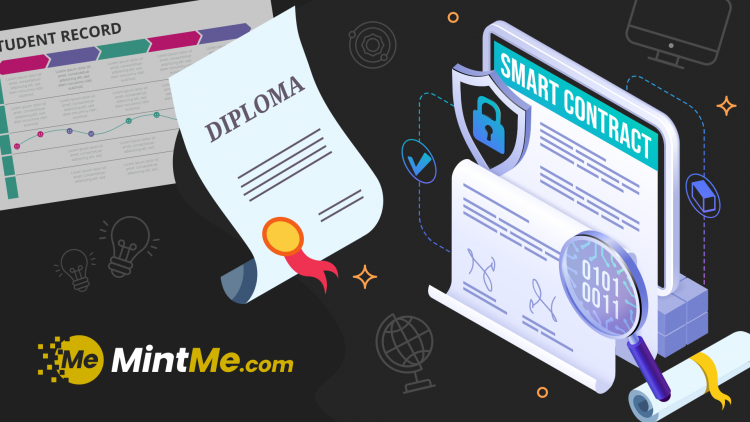Mintme News

Blockchain technology has become increasingly popular in recent years and is being implemented across a wide range of industries, from healthcare and finance to supply chain management and even voting systems. However, one area where the potential of blockchain is not yet fully realized is education.
Education is a sector that is ripe for disruption, with many problems related to record-keeping, verification of credentials, and the transparency of information. Blockchain technology has the potential to solve many of these issues by creating a decentralized and immutable system that allows for secure and transparent data sharing.
One of the primary benefits of blockchain in education is the ability to create a digital record of credentials that is tamper-proof and easily verifiable. Currently, verifying the authenticity of academic credentials is a time-consuming and often frustrating process. Students must contact their educational institutions to request transcripts, which can take weeks or even months to arrive. Employers, on the other hand, must spend a significant amount of time and money to verify the authenticity of credentials. With blockchain, all academic credentials can be stored on a tamper-proof ledger, which can be easily accessed by employers, educational institutions, and students themselves.
Another area where blockchain can have a significant impact on education is in the area of student data privacy. As education becomes increasingly digitized, there is a growing concern about the security and privacy of student data. With blockchain technology, all data can be stored on a decentralized ledger, which can be accessed by authorized parties only. This means that sensitive student information, such as grades and disciplinary records, can be securely stored and shared without the risk of unauthorized access.
Moreover, blockchain can help to address the issue of digital piracy in education. With the widespread availability of digital content, piracy has become a significant problem in the education industry, with publishers losing billions of dollars annually. Blockchain technology can provide a solution by creating a secure and transparent system for the distribution of educational content. This system can ensure that content is properly licensed and that copyright holders are properly compensated for their work.
Another area where blockchain can have a significant impact on education is in the area of micro-credentials. Micro-credentials are digital badges or certificates that recognize specific skills or competencies. They are becoming increasingly popular, as they provide a way for students to demonstrate their skills and knowledge in a way that is more granular than traditional degrees. Blockchain technology can help to create a decentralized system for the issuance and verification of micro-credentials, which can be easily shared and verified by employers and educational institutions.
Finally, blockchain can help to address the issue of education inequality. Currently, many individuals in developing countries do not have access to traditional educational institutions, and those who do often face significant barriers to entry. Blockchain technology can provide a way for individuals to access educational content and earn credentials without the need for traditional educational institutions. This can help to democratize education and provide individuals with the skills and knowledge they need to succeed.
In conclusion, blockchain technology has the potential to revolutionize the education industry by creating a secure and transparent system for record-keeping, verification of credentials, and data privacy. It can also help to address the issue of digital piracy, create a decentralized system for the issuance and verification of micro-credentials, and provide a way for individuals in developing countries to access educational content. While the adoption of blockchain technology in education is still in its early stages, it is clear that it has the potential to create significant benefits for students, educators, and employers alike.
Isaac Vitales